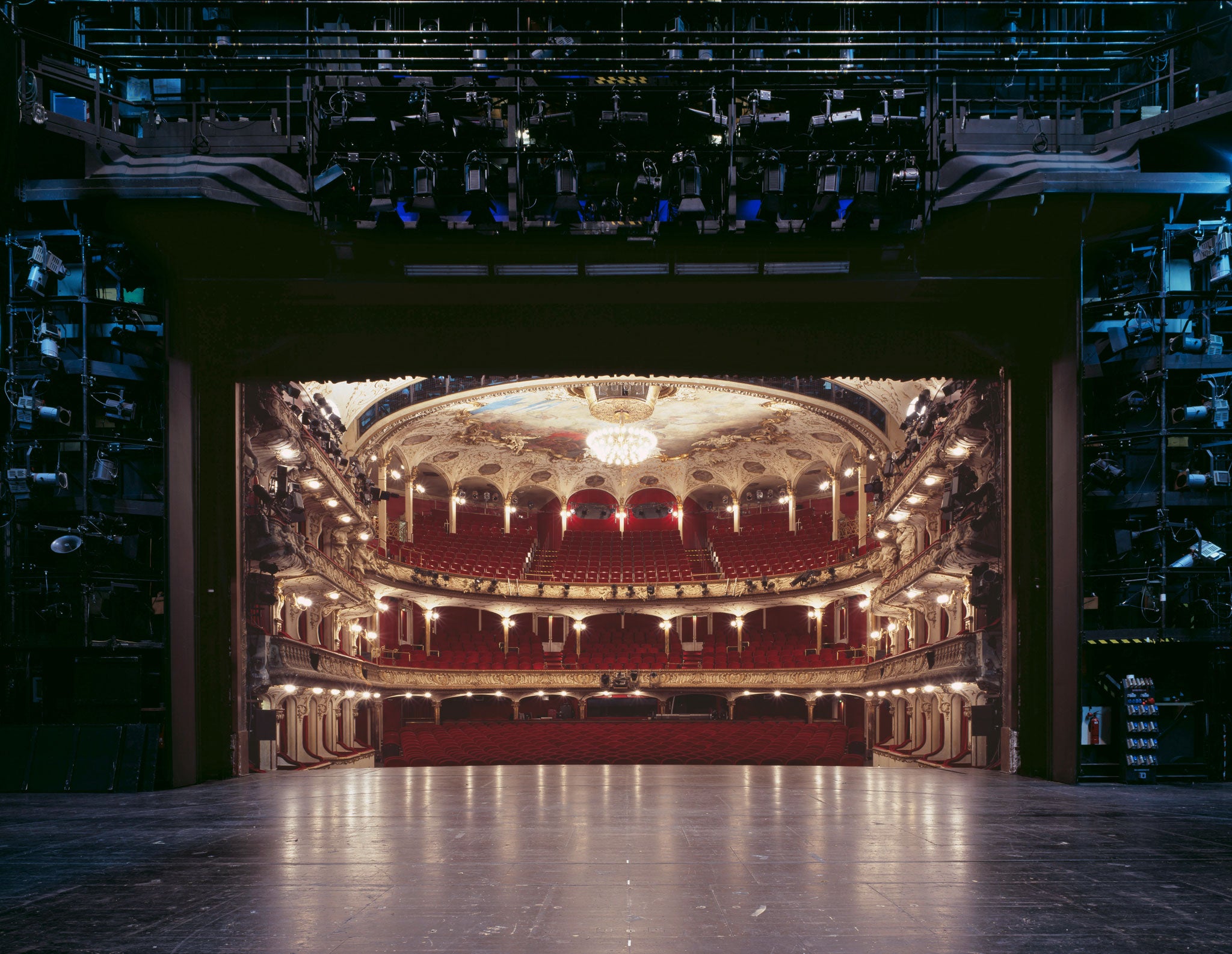Klaus Frahm's The Fourth Wall: A new theatrical perspective - from the depths of backstage
After the actors and audience have departed, enter, stage left, Klaus Frahm: the architectural photographer has been treading the boards of some of Germany's most glamorous theatrical spaces to capture them as never seen before

The fourth wall is the imaginary structure that runs across the front of a stage, allowing actors to inhabit their own world and ignore the audience – as if there is a wall between them. It's also the name of photographer Klaus Frahm's series of shots of theatres across his native Germany. Only in his work, the fourth wall is very visible: it is the auditorium itself.
By shooting from the very rear of the backstage area, Frahm's photographs look through the proscenium arch of a theatre on to the rows of seats – empty, waiting for their audience, just as the empty stage awaits its actors. This framing device plays on our expectations, as the window on to the seats itself comes to look like a stage, a theatrical set or backdrop. "The audience becomes flat like a postcard; it looks like the auditorium is on stage, like the audience is the play," suggests Frahm.
The "Fourth Wall" series is a side-project for this architectural photographer – but one which fascinates him, and which is ongoing; he hopes to take pictures of theatres in London this summer. Not that getting access is always easy – until the theatres he asks see his pictures, the concept can be tricky to sell, and even with the theatres' co-operation, he often only has a very short period between shows, or must shoot at night, after everyone else has gone home. "Sometimes it's just half-an-hour when people take a break, so you have to be very decisive, very quick," says Frahm. "Now I've got a kind of routine and I know how to operate some of the light systems if nobody's there; you learn a lot about theatre. It's a fascinating world – which for me is what I love about photography: I do things and see things that I would never normally."
Tinkering with the lighting helps Frahm ramp up the contrasts in the pictures, between the cool, strip-lit, technical backstage areas, and the warm, sumptuous interiors of the theatres. Frahm describes the former – which are often vast, up to three times the size of the stage – as being "like some science-fiction industrial place", forming a nice contrast to the auditoriums, which have "the softness of a big red sofa!"
Frahm isn't too rigid about what ends up in shot – part of the fun is arriving and photographing the theatre as it is at that moment in time. k Sometimes a bit of set or some musical equipment ends up in the photograph, or a piece of equipment is left backstage. "I like a surprise – sometimes they say the stage is empty, but when I'm there, you still see something and it adds to the concept."
The serendipity of the project is part of its joy – but so is getting to have a whole theatre to himself, after hours. Shooting at the Berliner Ensemble, Frahm says, was a particular favourite; he enjoyed treading the same boards as Bertolt Brecht. The experimental German director would surely have liked his photographs, I suggest – here is a man who did more than any other to smash the fourth wall, to demand an active audience and reveal the reality of a working theatre. Revealing that contrast between that industrial backstage and the opulence cocooning the audience would surely have tickled Brecht – as it does Frahm and his modern viewers, all enjoying a glimpse beyond the fourth wall.
For more: klaus-frahm.de; amreiheyne.com
Join our commenting forum
Join thought-provoking conversations, follow other Independent readers and see their replies
Comments